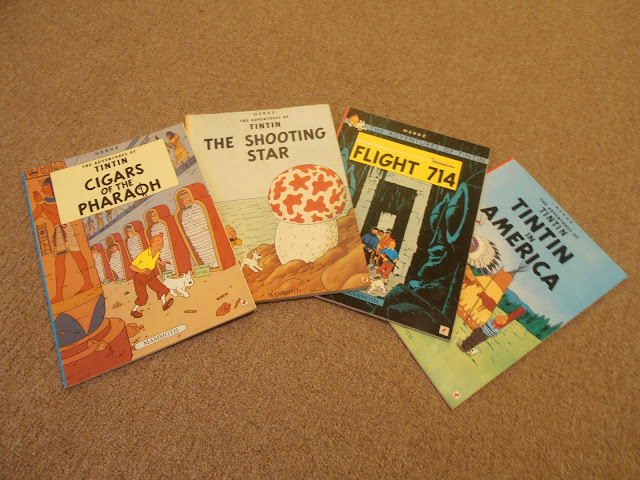The
Leeds International Film Festival (LIFF) announced its full line-up in a ceremony in the town this past Friday night. If you're lucky enough to be going along this year then here's a selection of highlights, in no particular order, from the programme, which you may want to consider. If you can't get there then look out for these coming to a rental list near you, sometime in the future.
Sat 12th Nov, 19:00 @ Hyde Park Picture House
Sun 13th Nov, 14:00 @ Hyde Park Picture House
Featuring a rare chance to see Peter Stormare in a leading role,
Small Town Murder Songs is short at just seventy-five minutes and seems designed to be a film dense of theme. Reaction to its release in its native Canada (for more see
here and
here) has been largely positive with lots of praise for writer/director Ed Gass-Donnelly.
Fri 11th Nov, 14:00 @ Leeds Town Hall 1
Fri 11th Nov, 18:00 @ Leeds Town Hall 1
The IMDb synopsis for this ('two ghosts walk along the Camino of Santiago') is enough to guarantee interest and the imagery available online is haunting. Shot by Eduard Grau - who made Tom Ford's
A Single Man look so wonderful - this apparently produced a good reaction when footage from it was shown at the LIFF 25 launch event.
Fri 4th Nov, 20:00 @ Vue in the Light 1
Sun 6th Nov, 18:00 @ Vue in the Light 1
Rebecca Daly's feature-length debut,
The Other Side Of Sleep has already featured on several festival slates this summer. Twitch were there to
catch up with it at Cannes, where it mainly appears to have gone down well. Another examination of small town murder this has 'indie-sleeper' written all over it.
Sat 5th Nov, 16:00 @ Hyde Park Picture House
Thu 10th Nov, 18:00 @ Vue in the Light 2
When you think of Japanese film, 'comedy' isn't the immediate genre that springs to mind but Yûya Ishii - described as a 'Leeds favourite' on the festival website - seems set on single-handedly changing that. His latest (Japanese title:
Hara ga kore nande) follows a down-and-out pregnant girl (the titular Mitsuko) as she tries to fix the lives of those around her.
Tue 8th Nov, 21:00 @ Hyde Park Picture House
As an independent horror with very little proven pedigree to speak of,
Inbred could of course be awful. Still, it's difficult not to love both the tagline and the programming: sticking something on the bill that appears to directly laugh at the locals has to be applauded.
Fri 11th Nov, 16:00 @ Leeds Town Hall 1
Fri 11th Nov, 20:00 @ Leeds Town Hall 1
This has got to be considered a semi-coup for LIFF.
Bellflower has been described as a '
phenomenal showcase' for writer/director Evan Glodell, whose film wowed several critics at Sundance. Currently one of the hottest indies around.
Wed 16th Nov, 18:00 @ Hyde Park Picture House
Back in January, Park Chan-Wook caused a stir by announcing that he was
shooting his next film entirely on an iPhone. This screening pulls together both the finished article (
Night Fishing) and two of the director's earlier shorts. A must for
Oldboy fans. And iPhone fans.
Sat 12th Nov, 20:00 @ Hyde Park Picture House
Continuing the rise and rise of Australian cinema over the last few years,
Snowtown has already managed to generate some serious buzz across several markets. Detailing John Bunting, Australia's most infamous serial killer, through the eyes of the 16 year-old boy he befriends, this could be a huge breakout for director Justin Kurzel, for whom this is a first feature.
Look further...
The festival's big hitters have been purposefully left off this list (there's plenty about them elsewhere) but if you want to see opening night (3rd November) film
Wuthering Heights or
Shame, the closing film of the official selection (18th November), then it is probably best to sort out tickets sooner rather than later. Other notable 'big' films showing at the festival include
The Thing prequel (5th November) and possible awards contender
Take Shelter (6th and 7th November).
Also left off this list are the selection of classics screening this year. These provide a rare opportunity to see some fantastic films on the big screen, whilst also providing a break from the influx of new things festival-goers will no doubt be dashing between. Notable films available for your nostalgic pleasure at LIFF 25 are;
Alien (November 6th),
Aliens (November 15th),
Close Encounters Of The Third Kind (November 13th),
Family Life (November 18th),
Grave Of The Fireflies (November 5th),
Invasion Of The Body Snatchers (4th November),
Psycho (November 5th),
The Day The Earth Stood Still (4th and 6th November) and
Waltz With Bashir (14th and 16th November).




































